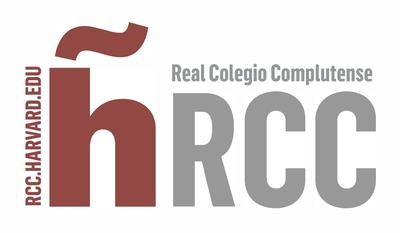Co-chairs: Doris Sommer (Ira and Jewell Williams Professor of Romance Languages and Literatures and of African American Studies, Director of the Cultural Agents Initiative at Harvard University) and Borja Manero (Associate Professor at Software Engineering and Artificial Intelligence Department at Complutense University of Madrid).
The ATL Study Group arises from the synergies created between Cultural Agents initiative from Harvard and the Software Engineering and Artificial Intelligence department of Complutense University in 2015.
These contacts resulted in a research team that brought the Pre-texts initiative into Madrid. In particular, to the Escorial summer courses. Later, the Pre-texts Spain started a collaboration with the Madrid City Council, the Regional Assembly of Madrid, and the Regional Government of Valencia, among others.
The main goal of this study group is to research the possibilities that different artistic disciplines offer to improve soft skills (especially leadership) through new technologies.
Leaders are not only capable of bringing out the best in themselves but also in their teams. Developing self-leadership disciplines is a keystone to educate leaders for the future. If we educate our children and teenagers in those disciplines, we will foster a correct emotional management, and also in both, intrapersonal and interpersonal basic competences. In fact, European Commission considers crucial the education in leadership in order to improve employability in Europe in a medium term. Since this group mainly pursues an educational goal, new technologies offer us an unbeatable way to reach more potential learners. Currently, the group is testing educational videogames as a medium to deliver our contents.
Educational videogames have demonstrated their effectiveness in many knowledge areas, mainly in STEAM (sciences, technology, engineering, arts and mathematics). However, arts have just been recently included. In comparison with the other disciplines, educational videogames focused in artistic disciplines are currently been tested. What seems clear is that arts, such as theater, music or dance, generate an ideal environment to acquire self-leadership competences.

Motion capture by Antonio Najarro. Director of the National Ballet of Spain (June 2017)
The researchers will take advantage of the new technologies to educate in different soft skills. On the one hand, these tools provide us with a cost-effectiveness solution, since they do not require the expert presence for teaching. On the other, future users will be able to decide the specific competences to work in, tailoring the tools to their specific needs.
In particular, this study group researches in educational videogames, applied arts, immersive learning environments (ILE), and self-leadership abilities acquisition: emotional self-regulation, empathy, self-esteem, teamwork, conflict management, effective communication, creativity and innovation.
To what extent are the arts capable of improve soft skills? Will new technologies suit to teach soft skills through arts? Is virtual reality the bridge we were looking for between computers and humanities? Are educational videogames the right tools to put soft skills and technologies together?
Study Group Members:
Doris Sommer (Director of the Cultural Agents Initiative at Harvard University, Ira and Jewell Williams Professor of Romance Languages and Literatures and of African American Studies); Borja Manero (Associate Professor at Software Engineering and Artificial Intelligence Department at Complutense University of Madrid); Mónica Aranegui (Assistant Professor at Complutense University of Madrid); Manuel González Riojo (Lecturer at UCM); Alejandro Romero (Lecturer at UCM); César Díaz-Faes (Lecturer at UCM)
